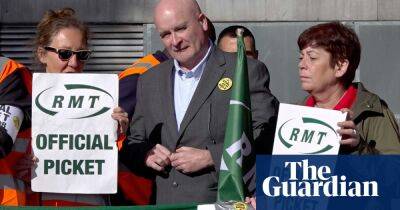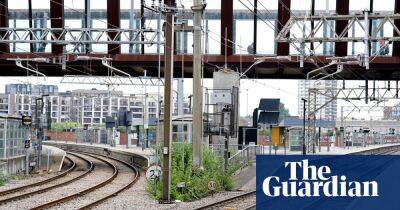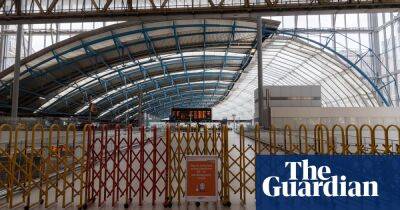There’s nothing prehistoric about strikes – just ask young trade unionists
This week, on the first day of rail strikes across the UK and under the threat of industrial action from refuse workers, teachers and lawyers, The Sun emblazoned its front page with the headline: “We regret to announce that this country is returning to the 1970s.” Later that day, in a now much-memed exchange, Sky News presenter Kay Burley told the RMT union general secretary, Mick Lynch, that she understood what picketing entails “because I very well remember the picket lines of the 1980s”. And trailing his interview with Lynch a week earlier, the BBC’s Nick Robinson wrote on Twitter: “Is he a champion of workers … or a politically motivated dinosaur?”
While some paint trade unions as outdated and irrelevant, the truth is that it is they who are out of touch. Today’s industrial disputes are about very current demands for higher pay in the face of inflation, after a year of wage stagnation. That’s why it’s not members of a certain age balloting for strike action, but a new generation of energised trade unionists.
In a poll conducted by Savanta ComRes at the outset of the rail strikes, a larger proportion of 18- to 34-year-olds than any other age group said the strikes were “absolutely justified”. It’s no surprise that this demographic thinks so: young workers today are more likely than their counterparts to be in insecure jobs, to be paid low wages, and to face a lack of career progression at work. If any group can identify the inherent inequality built into our workplaces, it’s them.
Young people face an uncertain and unequal future as they run to keep up with ever-increasing outgoings. University has left them saddled with a lifetime of debt and the high cost of home ownership has left many paying extortionate rents. In
Read more on theguardian.com






















